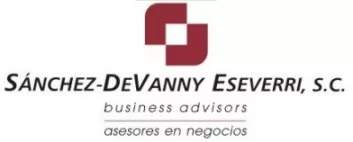You feel at ease. Your company has made a great investment in technology and has achieved efficiency and important savings with its ERP (Enterprise Resource Planning) system. Now that your IT is to date, are you sure they fulfill the necessary requirements and protect you from possible legal implications? Is your company "covered"?
As obvious as they may seem, these are the type of questions that keep Directors and CEO’s awake and ruin their golf games.
Technology is part of almost all operations and activities of a company. Nowadays, "being in technologies’ avant-garde" doesn’t only imply carrying the smallest cell-phone nor counting with an optimal inventories’ management system. Companies are challenged to survive, stay current, and take advantage of all tools that technology has to offer in a world full of change and evolution.
Only a few years ago, Mexico was a step behind in the implementation and use of automatic systems, but this is changing quickly. By the end of year 2000, IDC Select reported 3.5 million users, a 50% increase compared to the late nineties which reflects an important and sustained growth. At least partially, this development comes from the implementation by Mexican companies of technology, trough the development of their own platforms or by implementing ERPs that allow them to make an efficient use of their resources and manage information.
As it often happens, Law has taken time to catch up with technology advances. Notwithstanding, the efforts of the Mexican Government (and granting that there’s still much to do) to provide e- commerce with a clear and consistent legal framework must be recognized. However, the efforts of the Government and its legislative branch are useless if companies do not take advantage of them.
Notwithstanding the above, in the technology race, companies, software developers, implementators and consultants have often forgotten that digital systems –just as and their analogical counterparts– must comply with the legal provisions that govern the underlying operations. The above mentioned must keep in mind that: Technology efficiency does not equal legal compliance.
Technology is not the only thing that keeps companies alive, assurance derived from legal compliance, inside and outside the IT department, is also a key factor. There are many legal implications derived from using any kind of enterprise solution software, MRPs/ERPs, CRMs, SCMs, etcetera. From agreement issues with suppliers, human resources, confidentiality and trade secrets, corporate & powers of attorney concerns and corporate governance just to mention a few.
Keep in mind that implementing new technology in your company may have legal implications. Involve, as early in the project as possible, legal advice, to validate the processes as mapped (or suggest changes to these) and evaluate legal implications thereto, to jointly develop amendments, internal policies and an analysis that allows the elimination of possible impacts and contingencies.
Granted, for all this, you will need lawyers who actually understand technology, but that’s another story…
The content of this article is intended to provide a general guide to the subject matter. Specialist advice should be sought about your specific circumstances.
To view the Spanish version of this article please click here.

